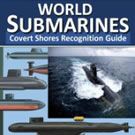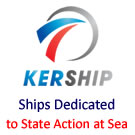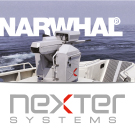Littoral Combat Ship (LCS) Tulsa (LCS 16) successfully completed acceptance trials March 9 after a series of in-port and underway demonstrations for the U.S. Navy's Board of Inspection and Survey. Acceptance trials are the last significant milestone before delivery of the ship to the U.S. Navy. During trials, the U.S. Navy conducted comprehensive tests of the future USS Tulsa, intended to demonstrate the performance of the propulsion plant, ship handling abilities and auxiliary systems.
 The future USS Tulsa during Acceptance Trials. Austal picture.
The future USS Tulsa during Acceptance Trials. Austal picture.
"The Navy and industry trials team in Mobile executed another solid Acceptance Trials. The performance of the ship demonstrated incorporation of lessons learned and continual ship-over-ship improvements which will ultimately result in decreased cost to the Navy," said Capt. Mike Taylor, LCS program manager. "Tulsa is well on track to provide needed LCS warfighting capability to the fleet and the nation."
While underway, the ship successfully demonstrated her bow thruster, twin boom extensible crane operations with the 11-meter rigid-hull inflatable boat, completed surface and air self-defense detect-to-engage exercises and demonstrated the ship's handling and maneuverability through high-speed steering and operation of her anchor.
Tulsa (LCS 16) will be commissioned into service following delivery, an industrial post-delivery availability and a post-delivery availability that is focused on crew training, certifications and familiarization exercises in Mobile. The ship will be homeported in San Diego with sister ships USS Independence (LCS 2), USS Coronado (LCS 4), USS Jackson (LCS 6), USS Montgomery (LCS 8), USS Gabrielle Giffords (LCS 10), USS Omaha (LCS 12), and the future USS Manchester (LCS 14), which delivered Feb. 28 and will be commissioned on May 26 in Portsmouth, New Hampshire.
Several more Independence-variant ships are under construction at Austal USA in Mobile. Charleston (LCS 18), Cincinnati (LCS 20), Kansas City (LCS 22), Oakland (LCS 24) and Mobile (LCS 26) are in varying stages of construction. In addition to these hulls, contracts for Savannah (LCS 28) and LCS 30 were awarded to Austal in 2017.
LCS is a modular, reconfigurable ship designed to meet validated fleet requirements for surface warfare, anti-submarine warfare, and mine countermeasures missions in the littoral region. An interchangeable mission package is embarked on each LCS and provides the primary mission systems in one of these warfare areas. Using an open architecture design, modular weapons, sensor systems and a variety of manned and unmanned vehicles to gain, sustain, and exploit littoral maritime supremacy, LCS provides U.S. joint force access to critical theaters.










